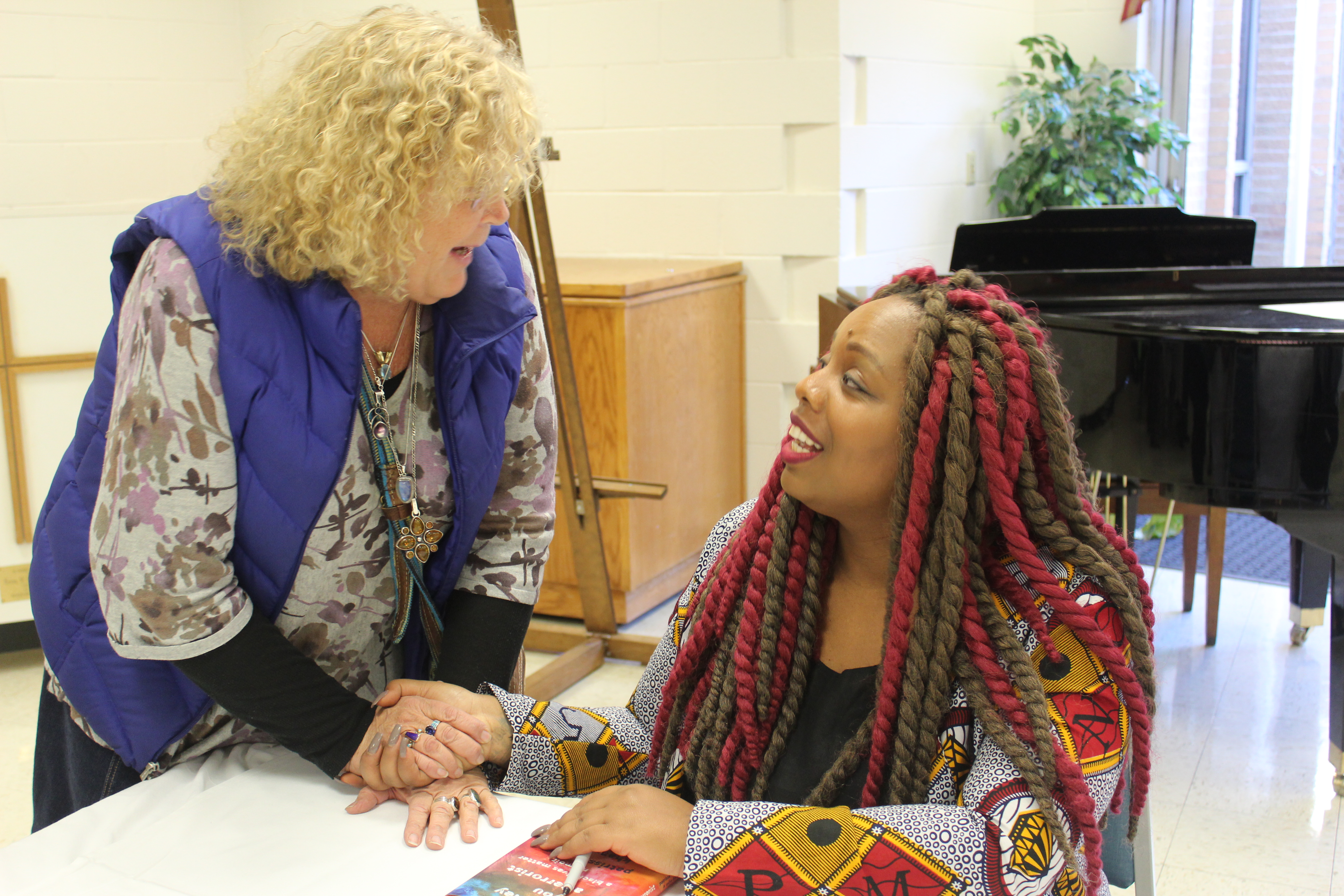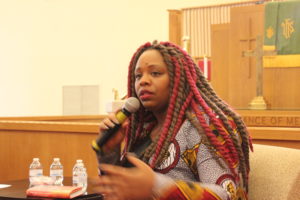By Ariel Worthy
The Birmingham Times

Patrisse Khan-Cullors, a founder of the Black Lives Movement, was in the cradle of the Civil Rights Movement last week to discuss her new book and her group being labeled a terrorist group.
Khan-Cullors was at St John AME Church in downtown Birmingham on Saturday at an event hosted by Cara McClure and WATV’s Ron January to discuss her book “When They Call You A Terrorist: A Black Lives Matter Memoir”.
“We’re labeled as a terrorist organization by not just regular folks, but elected officials and law enforcement,” she said. “There’s also a long history of black folks who have been fighting for our rights of freedom labeled as terrorists, which is why I asked Angela Davis to do the foreword (of the book). She was labeled as a terrorist and on the FBI’s most wanted list.”
Davis, a Birmingham native, is a political activist, academic, and author.
The growth of BLM can be attributed to social media. The organization’s co-founder, Alicia Garza, wrote a Facebook note and added #BlackLivesMatter to the end of it. That hashtag was added to the death of Trayvon Martin and the acquittal of his killer, George Zimmerman.
“Trayvon Martin was the spark that made me feel that we had to do something national. I am a local organizer, I still locally organize,” Khan-Cullors said. “Because his murder and George Zimmerman’s acquittal became a national outcry, I couldn’t imagine that it was going to be the period of the story. I couldn’t bear to live in good graces, if I didn’t try to do something more.”
Social media is only one tool the group uses, she said.
“People think that you can just put it on social media and it will go viral,” she said. “We have to think of a way of organizing that’s not just offline in the streets, but also online. There’s a structure and infrastructure to digital organizing and that’s what we have helped create.”
So many other contemporary movements have happened on social media, she said, pointing to #No More #Times Up and #MeToo.

During her visit, Cullors also discussed how community has been an important factor in BLM’s success. After the murder of Michael Brown in Ferguson, Mo, the organization was still new, and not yet a global network.
“We planned the BLM ride to Ferguson three weeks after Mike Brown’s murder, and it was 600 of us across the country, including Toronto, Canada and . . . we had no money,” she said. “[This was a] grassroots, volunteer effort . . . I met with the president of the university, and he said hosting us would be no problem, so a few days before the ride I called no answer, he never actually answered me.
“I talked to his secretary, and she said ‘I don’t know what you’re talking about, that’s Labor Day weekend, we’re not opened.’ We had 600 people and I had no idea where we were going to put them. “There was a woman in the community . . . she said, ‘Give me a few hours,’ and next thing I know I get a phone call from Pastor Starsky (Wilson of St. John’s United Church of Christ in St. Louis) and he said ‘I heard you’re looking for a place, you all can use my church.’ It was incredible.”
Cullors also answered questions from the audience about what she does for self-care, since she is faced with so much criticism.
“I believe all black people should receive therapy as part of our reparations package,” she said.
Cullors also addressed those who say “All Lives Matter” and “Blue Lives Matter.”
“I think All Lives Matter is a direct response to not believing that black lives actually matter,” she said. “I think all lives matter is an undermining of BLM and I think all lives matter is true, but it’s not true right now. If all lives matter, we wouldn’t need BLM. We’re not exclusive, we’re a focus. And the focus is about trying to take care of the people who are most neglected.”
She also spoke about the importance of black women to the movement.
“Black women are strategists, we can be at the helm of the movement,” she said. “Faces, historically, of movements have been mostly black men. And the work that we have done has centered black women because we’re the ones doing the work. If you look at who’s running BLM across the country it’s mostly black women and queer people.”



